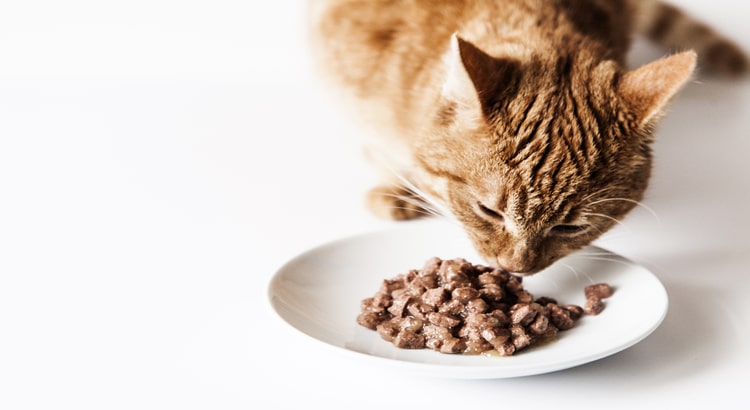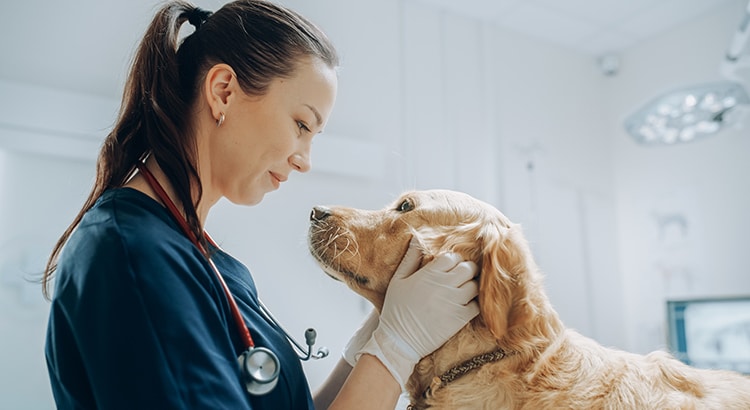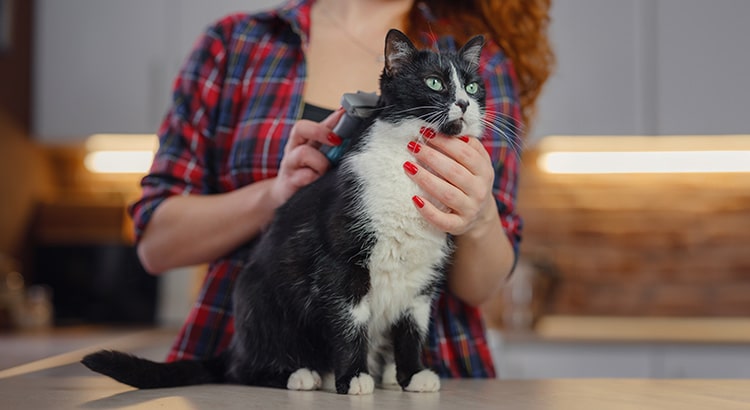
When thinking about cat food, one must remember cats are carnivorous animals. Therefore, when deciding which foods to include in their diet, it is important to consider sources of animal protein. Protein from meat supports a strong heart, good vision, and a healthy reproductive system. The best diet to consider is replicating the one they would find in the wild. A typical feral cat will hunt and consume 6+ mice throughout the day. To replicate this diet, it is recommended to feed your cat a diet consisting mostly of high in protein, quality canned foods.
In researching the lists of top rated wet cat food, prices were pretty steep ranging from $31.12 for a case of (24) 3 oz cans of Nature’s Variety Instinct Rabbit Formula to $74.99 for Ziwi Peak Mackerel & Lamb. There are more cost-friendly options when choosing a high quality, high protein diet for cat owners. An affordable wet cat food option is Purina Fancy Feast Grilled Collection Seafood Variety Pack (24) 3 oz. cans for $13.19 or the Poultry & Beef Variety Pack for $12.10. Your cat will consume protein-rich nutrition with essential vitamins and minerals.
Carnivorous animals are able to maintain their body weight and health as they are hunters. Feral cats are on the move throughout the day and face physical challenges while hunting for food. A housecat, on the other hand, has food readily available for free grazing, which does not challenge them to move when they become hungry. It is recommended to place small bowls of cat food throughout the house to encourage jumping and mobility during the day. Place a bowl at the top of the stairs to encourage up and down ambulation or place a bowl of food on a surface which requires physical navigation and jumping.
Carnivorous animals eat amphibians, insects and other invertebrates as well as mammals, birds or fish. Cats are medium-sized carnivores and typically feed on rodents, birds, eggs, frogs, and insects. Carnivores that can’t survive without meat are called “obligate carnivores”. The most familiar example is a cat raised on a vegan diet which will die of malnutrition.
In addition to providing nutrition through canned food, there are a few people foods you can give sparingly as a treat.
According to Pets.WebMD.Com, people food cats can eat include cooked beef, chicken, turkey, and small amounts of lean deli meats. Additionally, whole grains are packed with protein per calorie and cats may like corn, polenta, brown rice, barley, and wheat berries. Make sure grains are mashed up so that your cat may digest them fully. Supplementing your cat’s diet with omega-3 fatty acids helps with arthritis, kidney disease, and heart disorders. Only give your cat canned or cooked fish. Raw fish is not recommended. Cooked eggs are another great source of protein for your cat, while raw eggs can be harmful. Vegetables are packed with vitamins, fiber and water to aid with digestion. Cucumber, cantaloupe, steamed broccoli or asparagus are options to try. Cheese contains high amounts of protein, however, is less “complete” than the protein found in meat. Cats tend to be sensitive to dairy, therefore give small amounts of cheese and avoid the saucer of milk.
Now that we have covered what cats should be eating as carnivorous animals, let’s visit what they shouldn’t eat:
A cat’s diet should mainly consist of high-quality, protein-packed cat food, and only on rare occasion should they be given people food. When choosing a cat food, look for a statement from AAFCO- the Association of American Feed Control Officials- on the label.
The AAFCO is responsible for establishing the nutritional standards for complete and balanced pet foods, and it is the pet food company’s responsibility to formulate their products according to the appropriate AAFCO standard.
Always consult with your veterinarian before sharing people food treats with your feline. Overfeeding your cat can cause health problems including joint disease, heart disease and diabetes due to being overweight.




